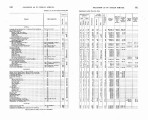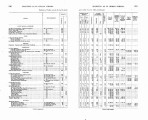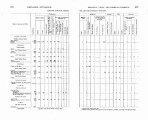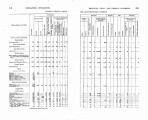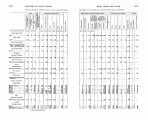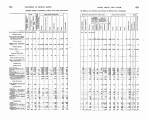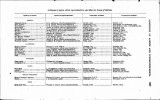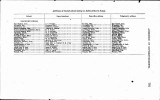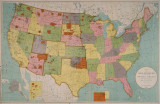| OCR Text |
Show 64 OOMMIBBIONER OF INDIAN AF~AIEB. or fifteen years, has some disadvantages. Jt would enhil upon agents a great amount of additional labor in keeping accounts and would probably require the employment of additional clerical force at those agencies where large quantities of land are being sold. In addition to this it would work a hardship upon the provident Indians who might be trusted to expend the money derived from the sale of lands in improving their own allotments. In Office letter of August 1 there was recommended to the Depart-ment a plan for conserving the proceeds from the sales of inherited Indian lands at the Yadkton Agency, a plan which could be extended to other agencies as occasion demanded. This plan was that Depart-ment regulations approved October 4,1902, he amended so as to require, in the discretion of the Commissioner of Indian Affairs, that the Indian heir or heirs petitioning for the sale of inherited Indian lands shall agree that the proceeds shall be placed by the Secretary of the Interior with the most convenient United States depository, subject to the check of the Indian heir or owner, but only in amounts not to exceed $10 in any one month, and only when approved by the United States Indian agent or other officer in charge of the agency, and for sums in excess of $10 per month only npon the approval of the Commissioner of Indian Affairs, the approval in each case to be endorsed upon the check. September 8, 1904, the Assistant Attorney-General submitted an opinion with respect to the legality of the remedy suggested in Office letter of August 1, as follows: I TheCommiesioner of Indian Affairs ha!,ing called attention in hid report of August 1. 1904, to tla deolorable condition mistinu at the Yankwrr Arreurv. 9. Dak.. arisiwa out of the sale ofinherited lands by ~ndianit,h e matter has been referred to me fo; I opinion as to proper legal remedy for the wrongs complained of. I It appears from a report of a special agent that the money received by Indians I from salea of their land is usually diseipated and squandered within a few days after 1 Its receipt. An Indian having land for sale ia induced to purchase articles not I needed by him at exorbitant prices, and to otherwise incur debt without adequate I consideration. Even when this is not done the Indian has shown himself as a rule aholly incapable of eaving or wring for his money. The Commissioner of Indian Affairs recommends that the regulations for eale of inherited lands be amended, so far as this agency is concerned, to require Indian heirs petitioning for sale of land to agree that the proceeds shall be placed with the neareat and most convenient United States depository, subject to the cheek of the Indian, for amounts not exceeding $10 in any one month, and only when approved by the agent in chargeof such agency and for Sum8 inexceas of $10 in any onemonth only upon approval of the Commissioner of Indian Affairs. All sales made under the act of Mav 27. 1902 (32 Stat.: 247. 2751. are mbieet to I . . . . .. approval by the Sevntary of the Interior, and thrre Jrrrnr t<n be no doubt as w your authority to yrenvribe such a rnle as w Wrommended by the Cornniip.ionerof India11 Affairs. These Indian? arestill in charge of ansgent ant1 wujaiu wanla of the Gov-ernment. Tlrr ~r incideiu volved is the sameas Illat in the caw. of vontrul of rnotrry derived from thi salebt timber from Chippewa allotted lauds. The authority of the |






















































































































































































































